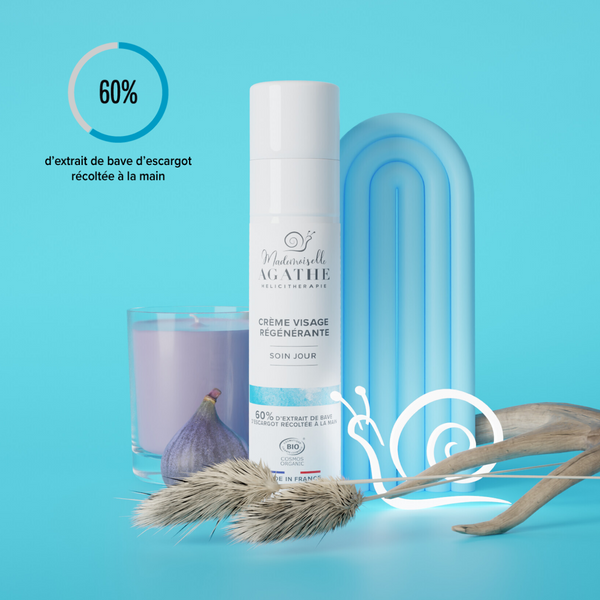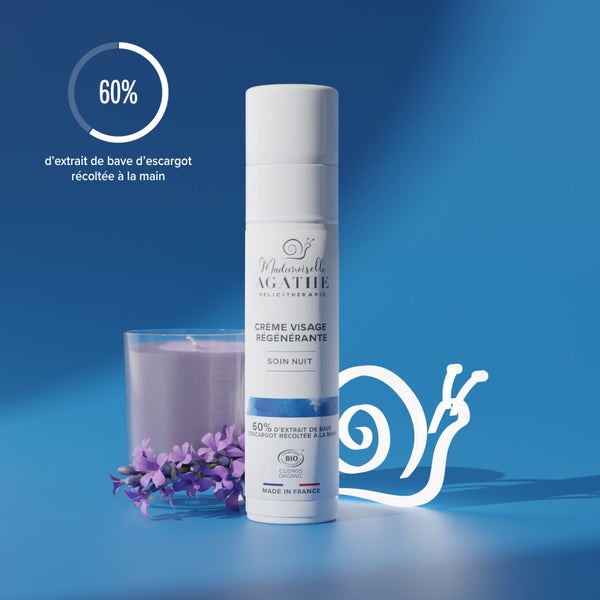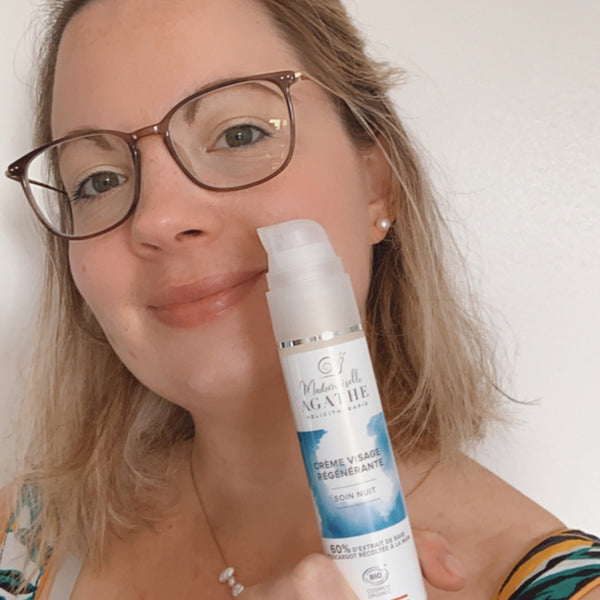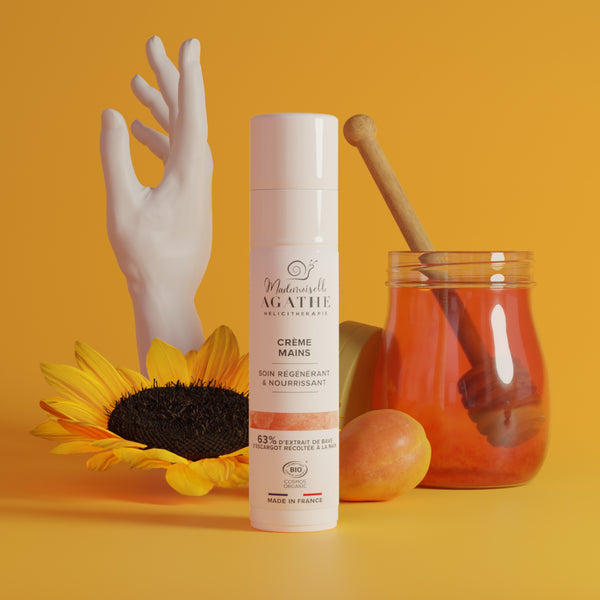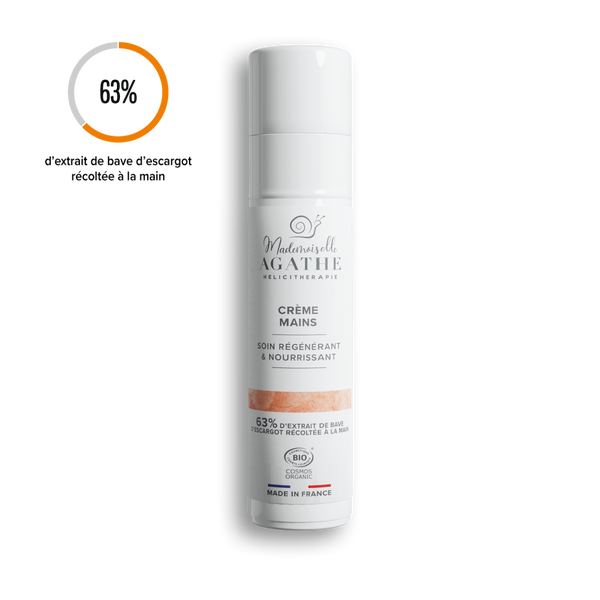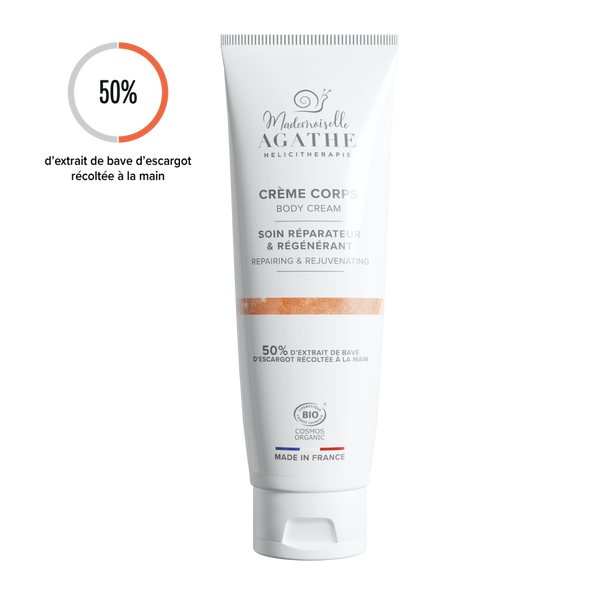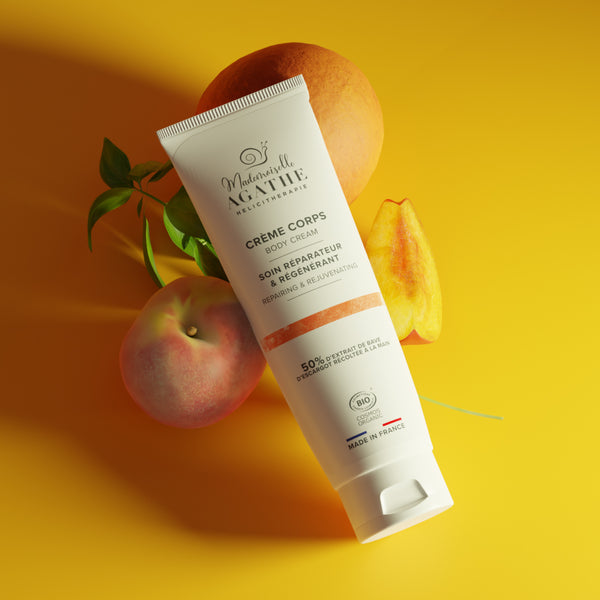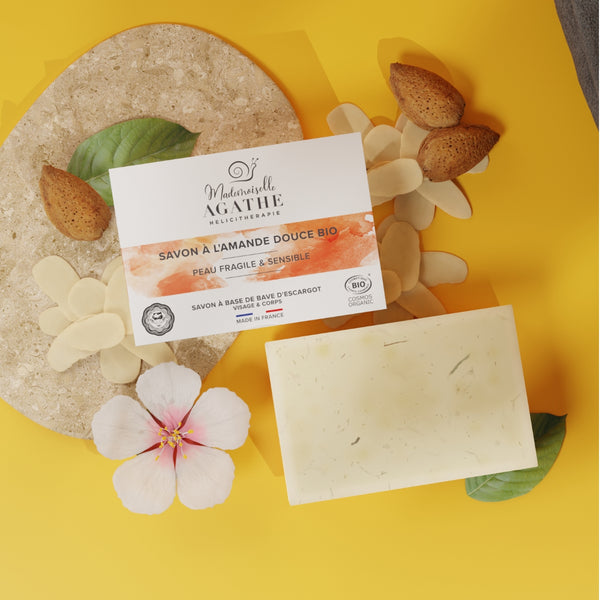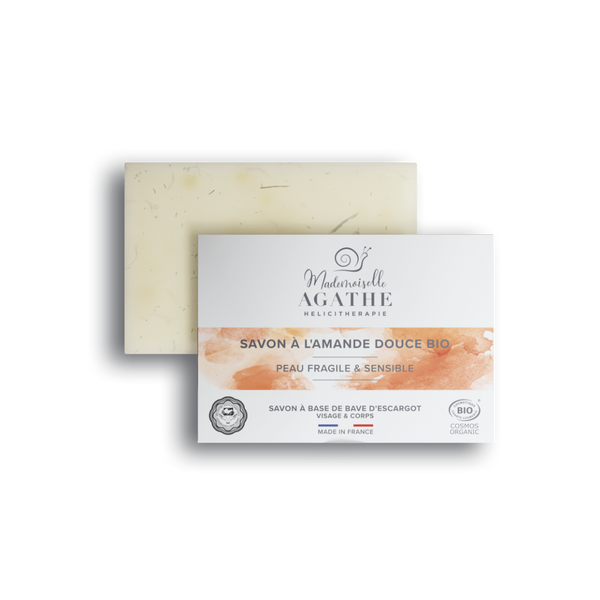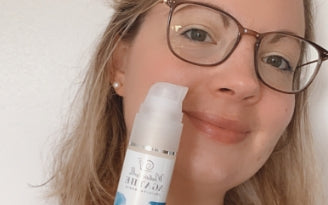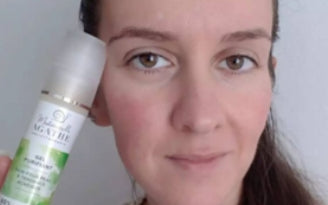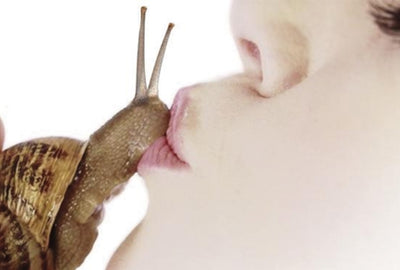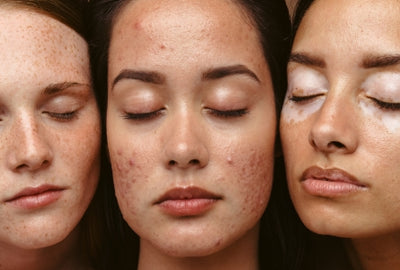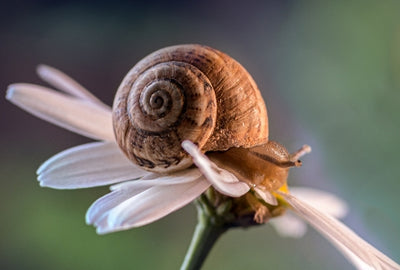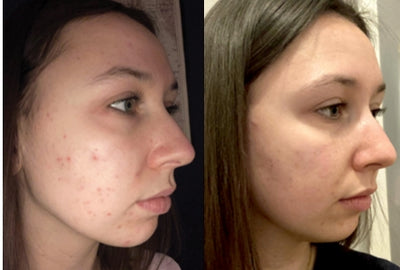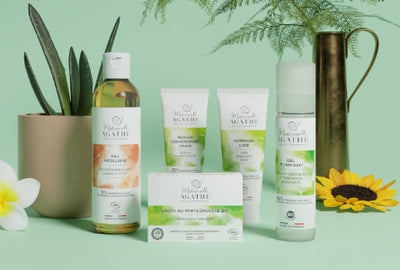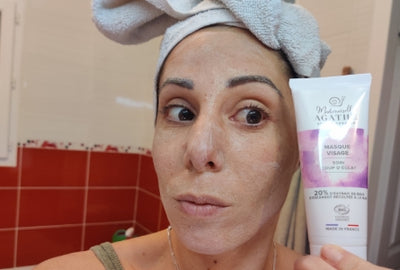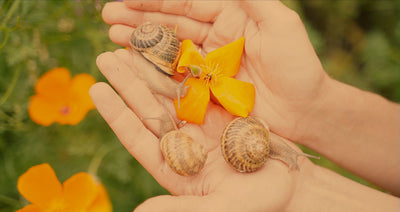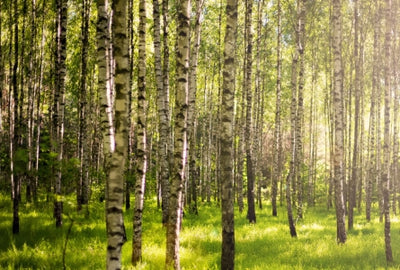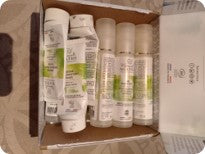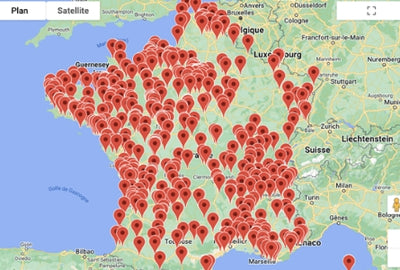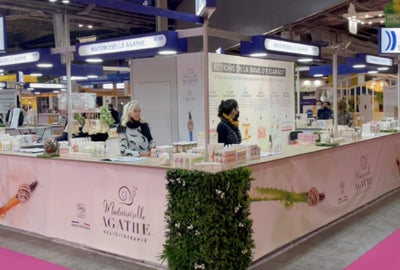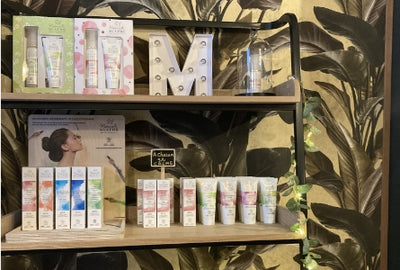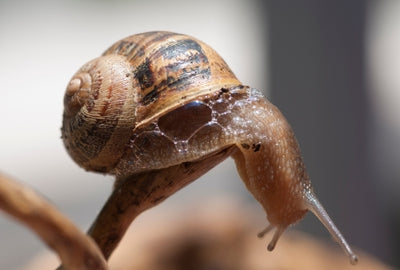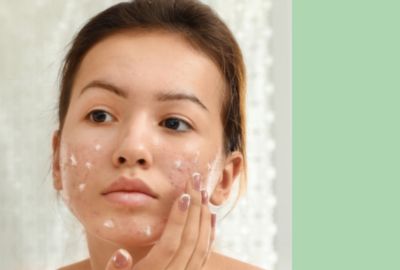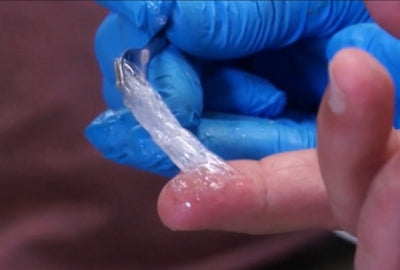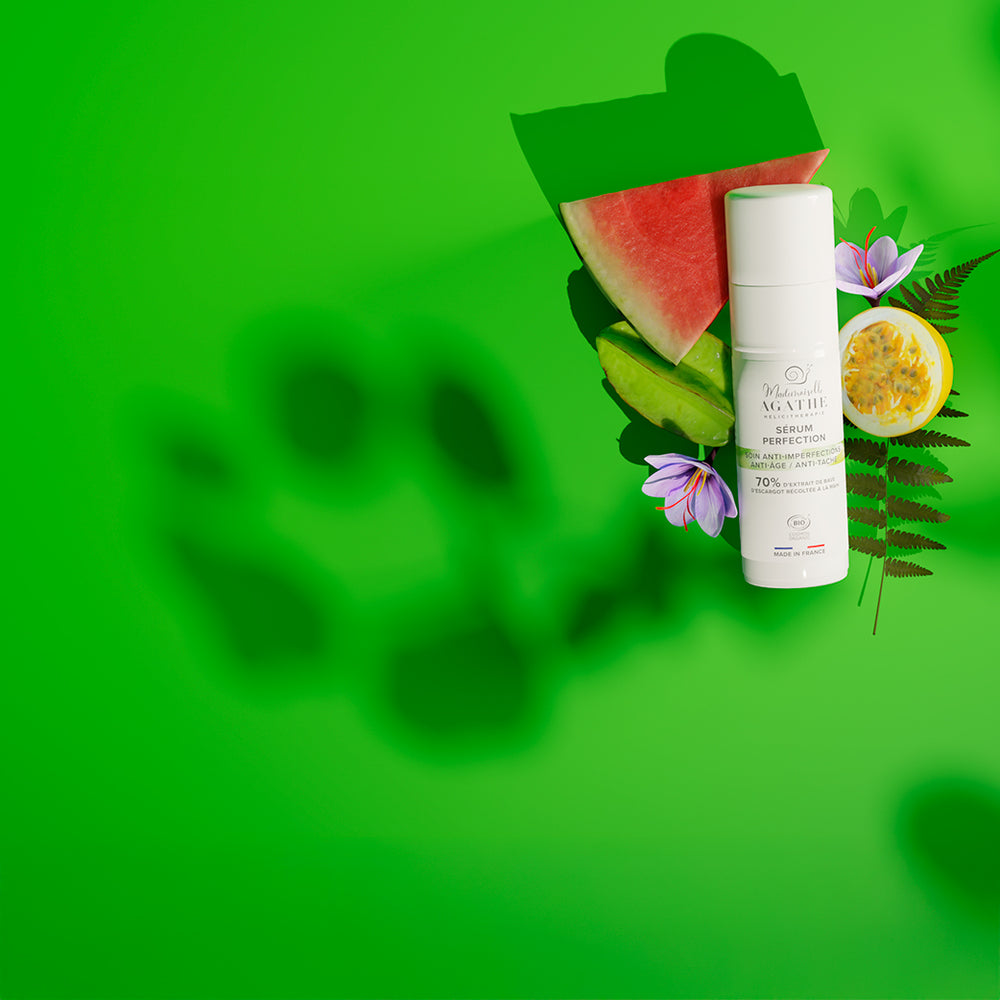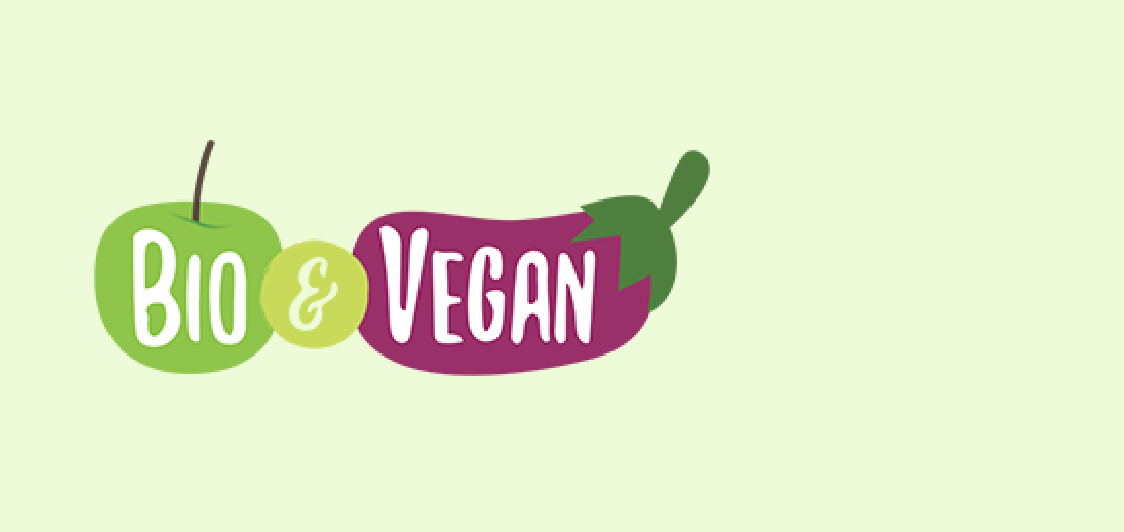
CAN YOU BE ORGANIC & VEGAN?
The rise of vegan cosmetic products , even if they are certified organic, raises questions about the true relevance of the association between vegan and organic principles.
Organic farming is based on methods that promote animal well-being and the environment, in particular through practices derived directly from breeding.
Here we invite you to understand why it does not seem possible to reconcile the two.
Organic Farming: Definition
Organic farming is a global agricultural production system that combines best environmental practices, respect for biodiversity, preservation of natural resources and the application of high standards of animal welfare[1]
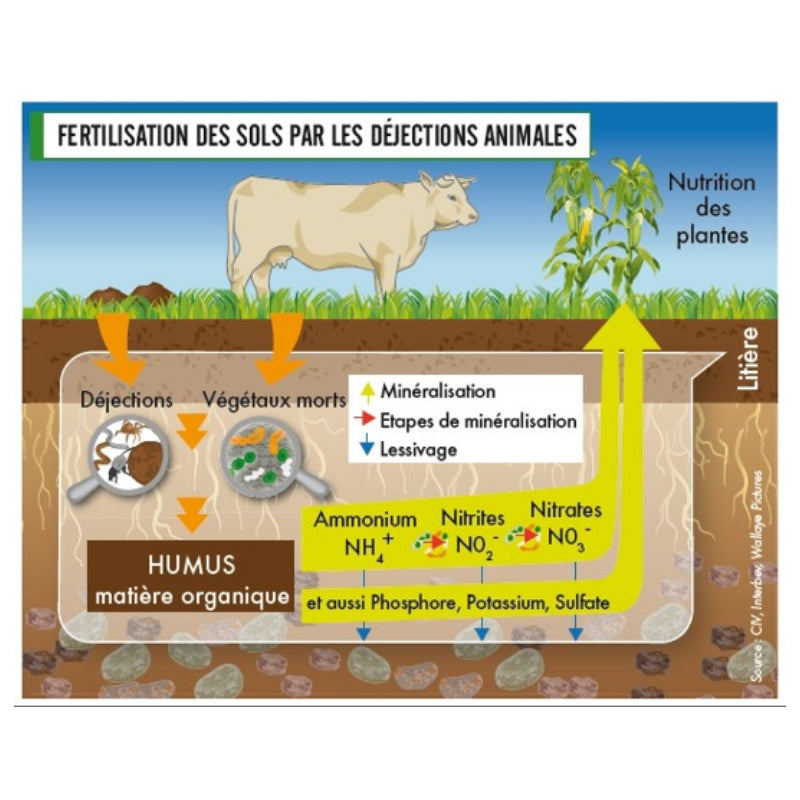

Organic fertilizers: nourish the soil rather than the plant.
Among the best environmental practices, fertilization, carried out with organic materials directly from the farm such as slurry, manure, compost, etc., allows yields without resorting to chemistry. These fertilizers from livestock improve the structure of the land by increasing the quantity of organic matter and stimulating the activity of soil micro-organisms.
Rich in essential plant elements such as nitrogen, phosphorus and potash, these materials remain in the soil and gradually add humus over the years. The gradual action of the bacteria releases the nutrients necessary for plants in a slow and constant manner, thus ensuring nourishment of the soil over several months.
Made only from natural materials, these fertilizers are more environmentally friendly than their chemical counterparts, offering a healthy method of fertilization.
Some other organic animal-vegetable synergies
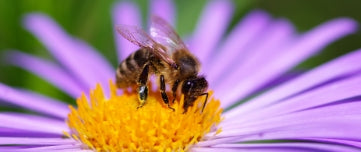
1
Pollination
Animals, especially insects like bees, play an essential role in pollinating plants. Without this pollination, many crops would not be productive.
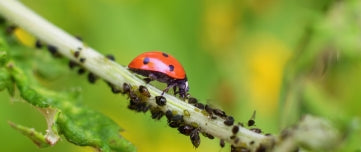
2
Pest control
Certain animal species can help control insect pest populations. For example, ladybugs are natural enemies of aphids. Adult ladybugs are voracious predators, a single one can eat around sixty aphids every day.
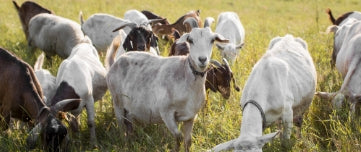
3
Weed management
Some animals, such as goats, are known to consume plants that other animals avoid. They like to scratch the ground, which helps loosen weeds and prevent them from growing back. They can therefore be used to control certain weeds.
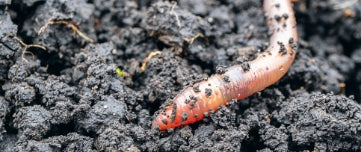
4
Soil aeration
Certain animals, such as earthworms and soil insects, help aerate the soil and decompose organic matter, promoting plant growth.
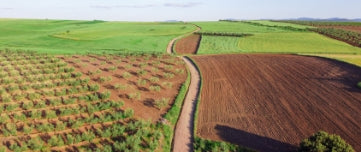
5
Crop rotation and grazing
In a mixed farm, where livestock and cultivation are practiced, animals can graze on the land after harvest, consuming crop residues and at the same time fertilizing the soil with their droppings. This prepares the soil for the next growing season.
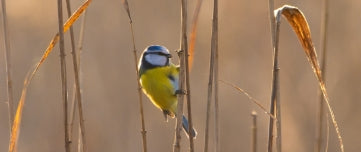
6
Biodiversity
Maintaining a diversity of animals and plants helps promote a resilient agricultural system. For example, it is thanks to agriculture that the biodiversity of territories is formed. Grazing herds feed an entire local ecosystem: insects that feed on manure, manure that enriches the earth, birds that feed on insects, hedges that shelter small mammals, etc.
LIVESTOCK IS CRUCIAL IN ORGANIC AGRICULTURE: It allows it to create a virtuous cycle while doing without industrial chemistry and oil. ~~~~~

What does vegan ideology offer?
It should still be remembered that the vegan movement represents around 0.3% of the population according to consumer surveys[3]. And what veganism advocates as a replacement for these ancestral agricultural practices is the use of chemical fertilizers, phytosanitary products, herbicides and without forgetting GMOs! Even if research exists concerning the use of human excrement or vegetable compost, they have not yet led to success until now since only one farm in France claims to be vegan, and it is a wine grower; this says a lot about the vegan alternatives offered. This preference for chemical instead of natural is not particularly surprising, especially among people who often consume ultra-processed products such as wheat nuggets or soy steaks.
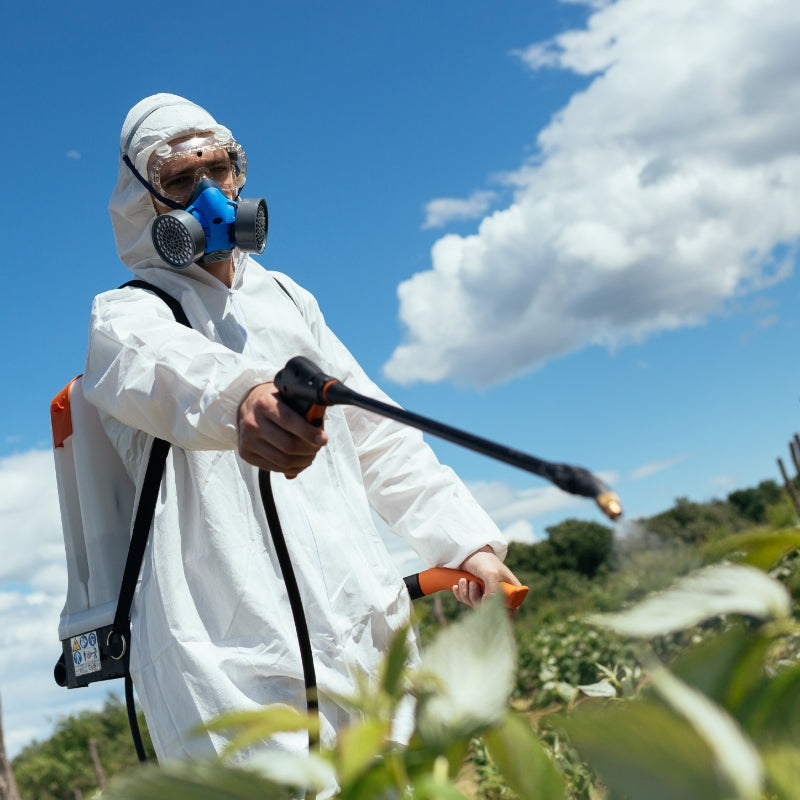
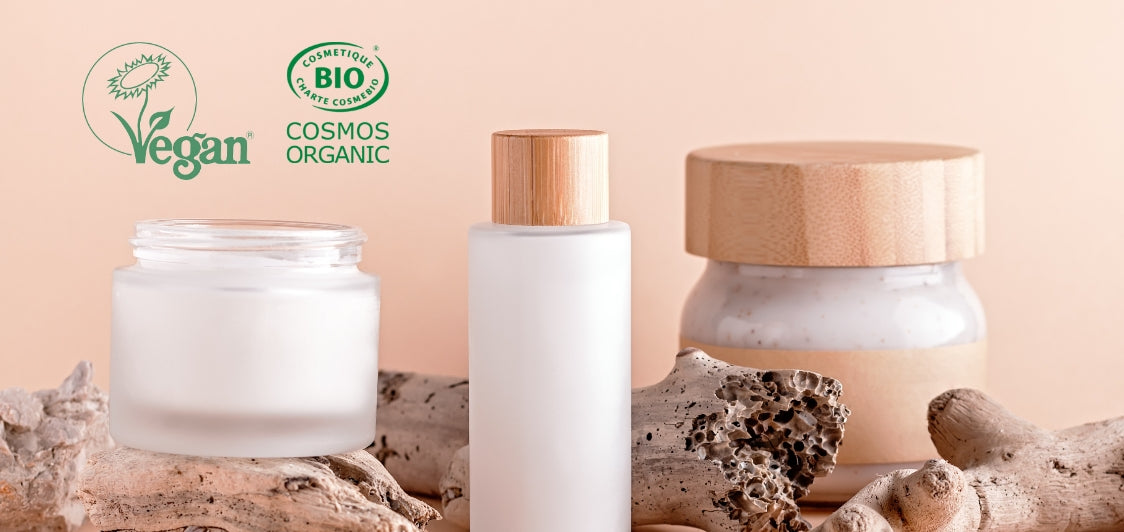
A new generation organic cosmetics
In a press article in May 2022, the newspaper “Le Parisien” highlights 10 new eco-responsible organic brands to follow. Among these 10 brands, 8 claim to be vegan.
So, what pushes these certified organic cosmetic brands to claim to be vegan?
It seems, to say the least, incompatible to adhere to the principle of organic farming through an effort to certify its products and at the same time to reject part of its production which is nevertheless essential to its existence.
Let's see that!
Vegan & animal welfare
What pushes these organic cosmetics brands to claim to be vegan is not so much the questioning of livestock farming, which veganism demands, but rather the cause of animal welfare. With a simple 6-letter word [VEGANE], everything is said. And in marketing, it’s worth gold! This means: I can safely use this treatment, since it is vegan, I am certain that no harm has been done to the animal, because there is nothing that comes from the animal. However, by opting for this simplified and easily understandable approach, does this really advance the cause of animal welfare?
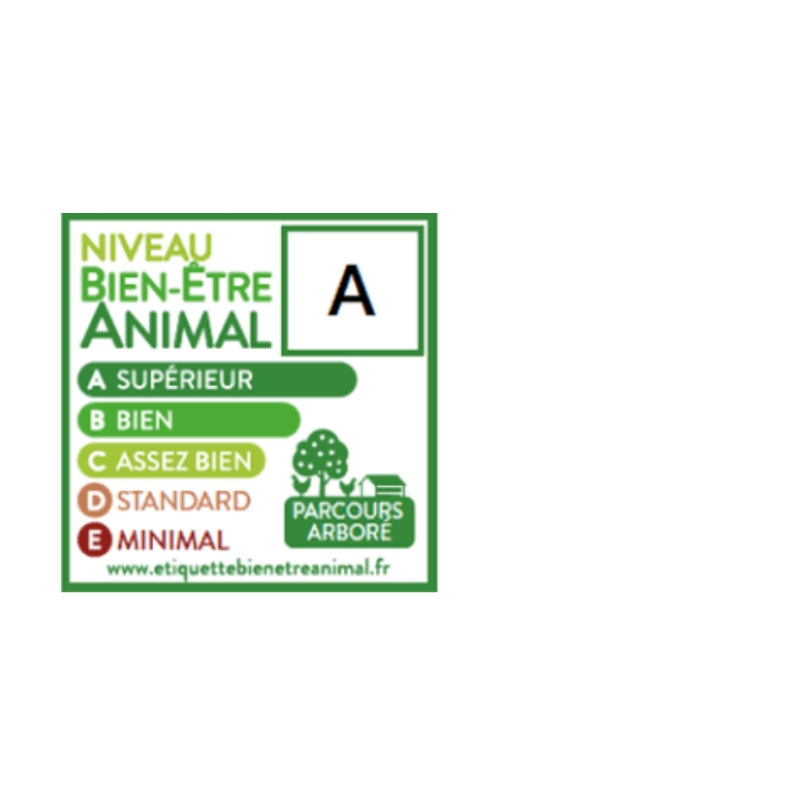
Remember that more than 80% of animals raised in France come from intensive breeding. If we do not promote the good practices of organic farming by not maximizing our products, then what is the point of breeding other than intensively, with the abuses that this entails for the animal?
And one of the things that stands in the way of farms that have chosen organic farming is the attacks from the vegan world which have led, it seems, a certain number of cosmetic brands and even a certain label to claim less use, or even no longer want to use ingredients of animal origin in formulas claimed to be 100% vegan, even though they advocate organic, nature and respect for the environment.
Indeed, more glycerin of bovine or porcine origin, more keratin from poultry feathers, more lanolin from wool, more milk protein and milk fat, more egg, of course more snail slime, and soon no more bee products, although the latter are still fairly well accepted.
But putting all cosmetic ingredients derived from animals on the same equal footing, and this is what the term VEGAN does in cosmetics, is not promoting animal welfare.
So why !
To value is also to respect
If all these ingredients mentioned above were used only from organic farming, where the animals are raised in optimal conditions for their well-being [4][5], this would make the label more attractive because it is better paid with more opportunities.
Indeed, if we allow a farmer to better promote the products of his farm, we allow him to reduce his yield and therefore the pressure exerted on his animals and even on the plants.
Patrice Lambert, our helicopter grower in Drôme, gives us answers on the benefits of using ingredients of animal origin in the organic farming cycle.
Promoting virtuous and committed agriculture
Throw away animal glycerin, from organic French breeding, to buy organic vegetable glycerin produced thousands of kilometers away, or even in France instead of a plot that could be intended for something else, do not is not only not interesting for the environment, but it also does not respect the animal which was harvested to feed us, and it is even less considering the work of a farmer who has made many efforts to respect the cycle and the natural needs of its livestock.
The idea of virtuous agriculture which requires a minimum of inputs and which creates more energy than it consumes[6], will inevitably involve the use of all possible ingredients.
And perhaps we would see fewer farmers selling their organic milk as conventional due to lack of market, while surely having the virtue of making organic a little more accessible.
Of course, there is no question here of endorsing “Squalane” from shark liver or any other ingredients which would contribute to practices of suffering, overfishing or intensive farming.
But rather to promote products from farms exclusively in organic farming, which are checked every year to ensure that the principles are respected.
The path to reason
the best way to make organic farming more attractive is of course to support it, and claiming to be Vegan in cosmetics does not help it, but it also means offering it profitable markets in a sector, which is let us remember, one of the markets where France is the world leader. It will then surely be easier to convert other farmers and perpetuate the sector. Today we see rather the opposite, for lack of outlets, some organic farms are returning to conventional farming. And I don't think it's a step forward for animal welfare. What do you think ?
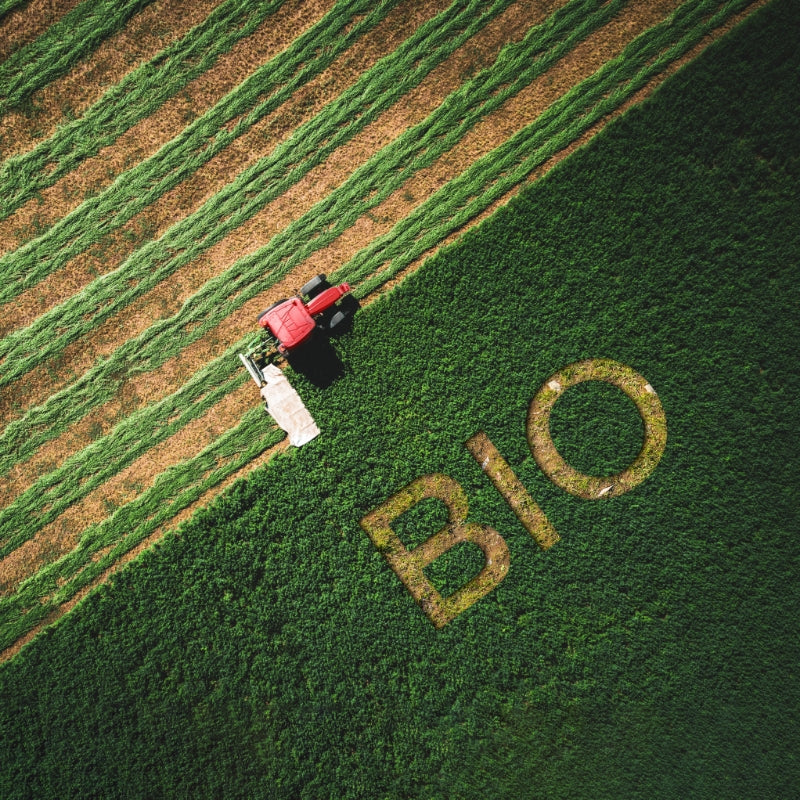
Sources:
[1]: agriculture.gouv.fr
[2]: agencebio.org
[3]: franceagrimer.fr
[4]: agencebio.org
[5]: The founder of the L214 association, Sébastien Arsac, believes that if all farms were certified organic, the problem of animal welfare would be solved. (Source: Podcast France Inter - Is veganism a new fundamentalism?)
[6]: When we measure the ratio between the quantity of calories produced and those spent to produce them, we see that the yield of above-ground breeding is 1% [it is necessary to consume 100 calories to produce 1], that that of on artificial meadows approaches 100% [1 cal to 1], while that of extensive livestock farms like mine is around 200% [1 cal spent gives 2 potential cal]. » Extract from: The vegan cause Laurent Chevallier & Frédéric Denhez
